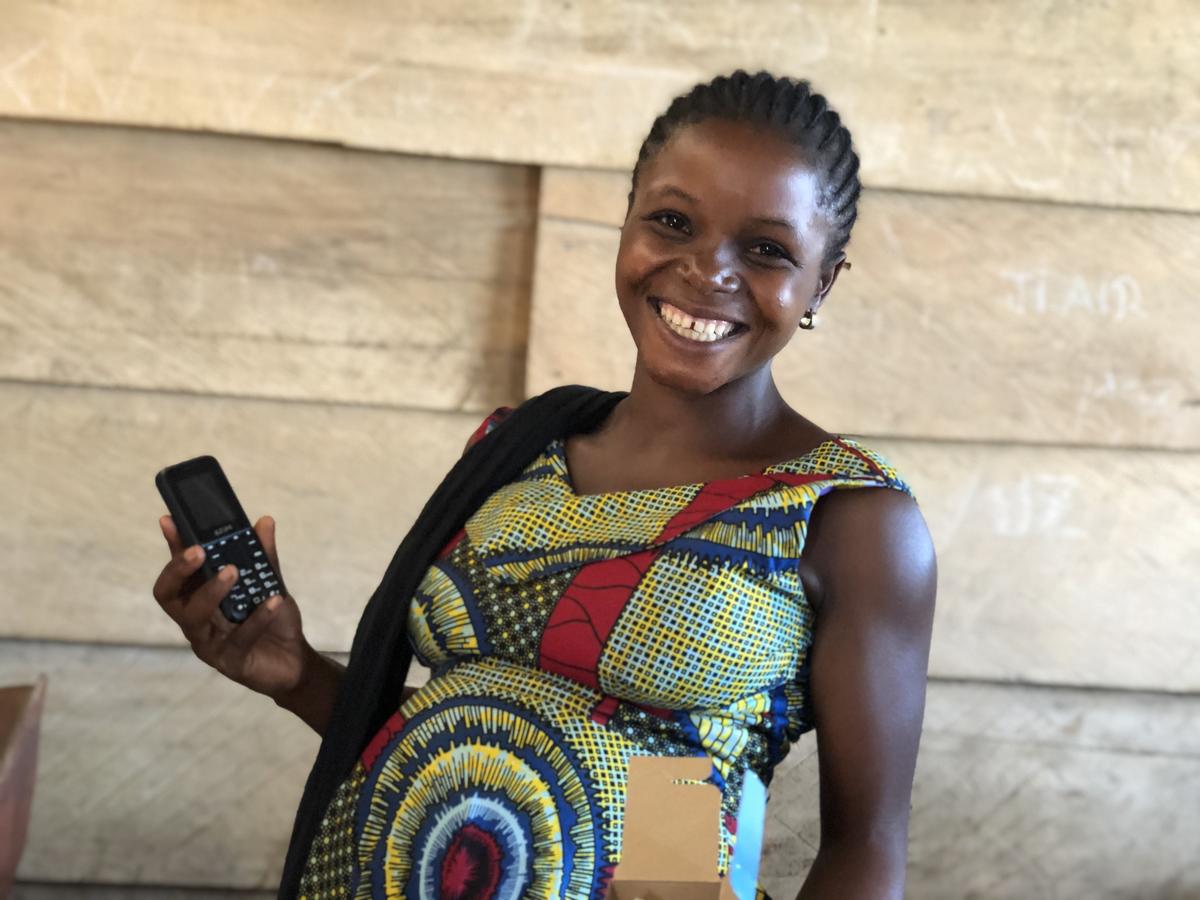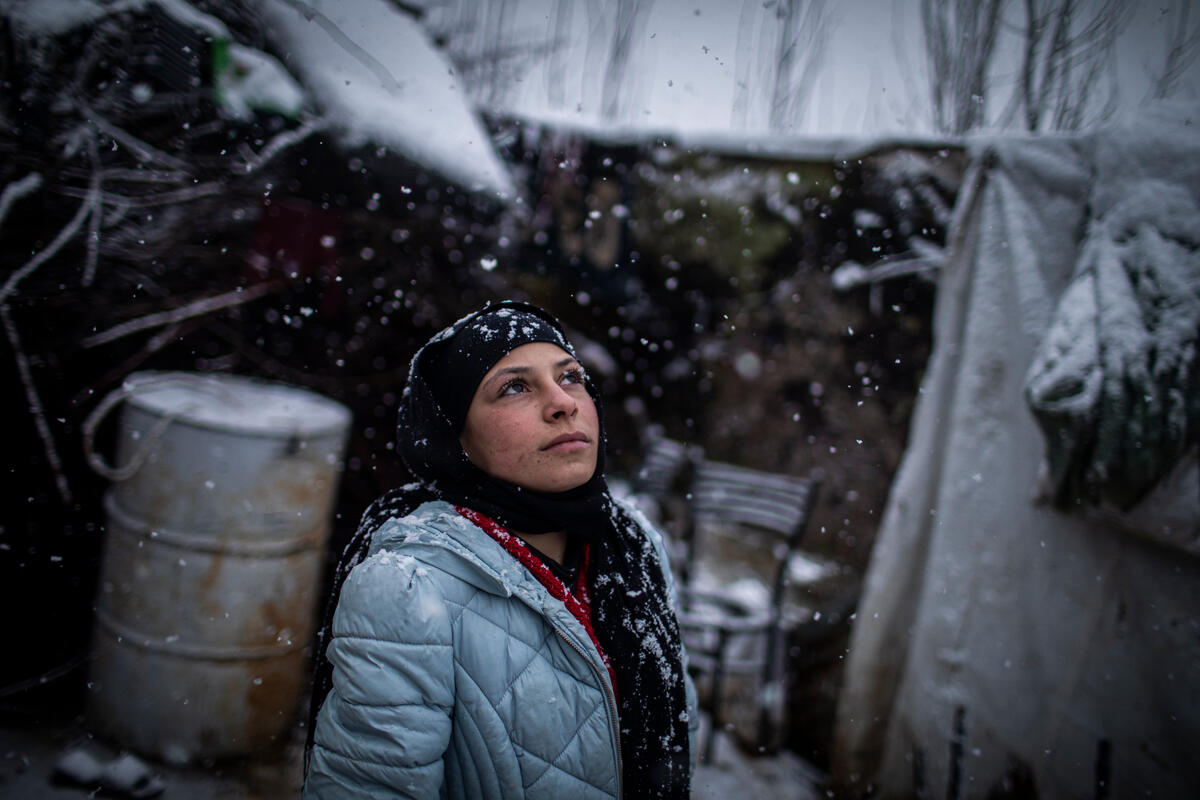Mobile money helps displaced Congolese survive amid coronavirus threat
Mobile money helps displaced Congolese survive amid coronavirus threat

Two months ago, Solonita, 59, fled with her son when armed men attacked her village in east Democratic Republic of the Congo. Forced from her home, she now lives in Beni town, where she has to prepare to face another potential health enemy – the coronavirus pandemic.
Fortunately, vital help now comes by mobile phone and hence reduces the transmission risks linked with physical interactions.
An SMS message recently notified her that US$75 in cash assistance had been transferred and she headed out to the closest bank to withdraw part of it. The money allows her to buy what she needs most for herself and her son, Kapule, who is 30.
“This will help me a lot. I will buy a blanket,” says Solonita. “All our belongings got burnt in the house that was set on fire by the assailants. I will also use this money to buy Kapule clothes because we fled without taking anything.”
Armed groups have forced more than one million people like Solonita and Kapule to flee their homes in North Kivu Province in the past 12 months. Most of them found safety in displacement sites or were welcomed in the local communities.
“This will help me a lot. I will buy a blanket.”
In some areas in eastern DRC, the continuing violent clashes are making it very difficult for UNHCR, the UN Refugee Agency, and its partners to provide protection and assistance and to implement activities that are vital to prevent the spread of the coronavirus in refugee camps and IDP settlements. UNHCR has facilitated committees in these communities to temporarily provide remote management until the security situation improves.
While there have been, so far, no COVID-19 cases reported among refugee or internally displaced communities, WHO has reported more than 470 confirmed cases in the DRC, mainly in the capital, Kinshasa, and 30 deaths.
To prevent the disease spreading, UNHCR is strengthening its health and sanitization activities in camps, sites and transit centres.
Together with 6,000 other displaced families in North Kivu province, Solonita received a mobile phone and a SIM card at a distribution site where UNHCR has put in place special measures to reduce physical contact and thereby enhance the awareness of the recipients of measures that the Government of DRC has announced to prevent the spread of the coronavirus.
Beneficiaries at the site have their temperature screened, are able to wash their hands at the installed handwashing stations, while keeping sufficient physical distance from each.
Provision of mobile phones and SIM cards to displaced families allows them to receive electronic payments. They can choose to prioritize needs that might range from food, to clothing, health care and shelter.
“This also allows us to maintain communication with them at a time where we need to practice social distancing,” Ibrahima Diane, UNHCR’s head of office in Beni.
“This allows us to maintain communication with them at a time where we need to practice social distancing.”
Globally, cash assistance now accounts for a greater share of UNHCR’s assistance than traditional in-kind distribution. In the DRC, over 60,000 internally displaced Congolese received cash assistance in 2019.
Worldwide, about 20 million forcibly displaced people in more than 100 countries received over US$2.4 billion in the three years between 2016 and 2019.
The efforts to prevent the spread of COVID-19 comes as the DRC still battles to eradicate the deadly Ebola virus, which has killed 2,279 people since the latest outbreak started in 2018. According to WHO, 478 individuals have lost their lives to Ebola in the Beni area.
In total, more than five million people have been uprooted by conflict in DRC, making it the single-largest internally displaced population in Africa. Forced displacements is mostly affecting North Kivu, South Kivu, Ituri, the Greater Kasai and Tanganyika provinces.
Funding shortages are affecting displaced people’s ability to meet their own basic needs. By April 2020, only 18 per cent of the total US$154 million required for UNHCR’s operation in the Democratic of the Congo had been received.










